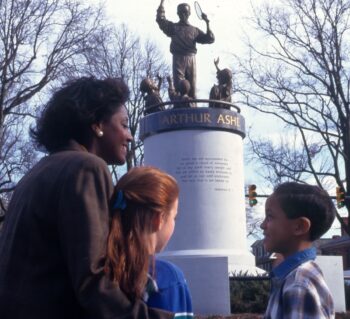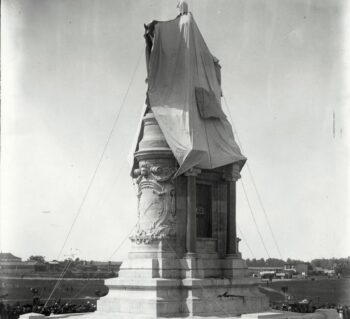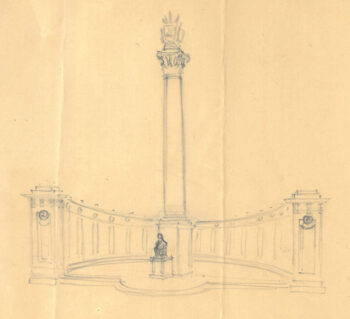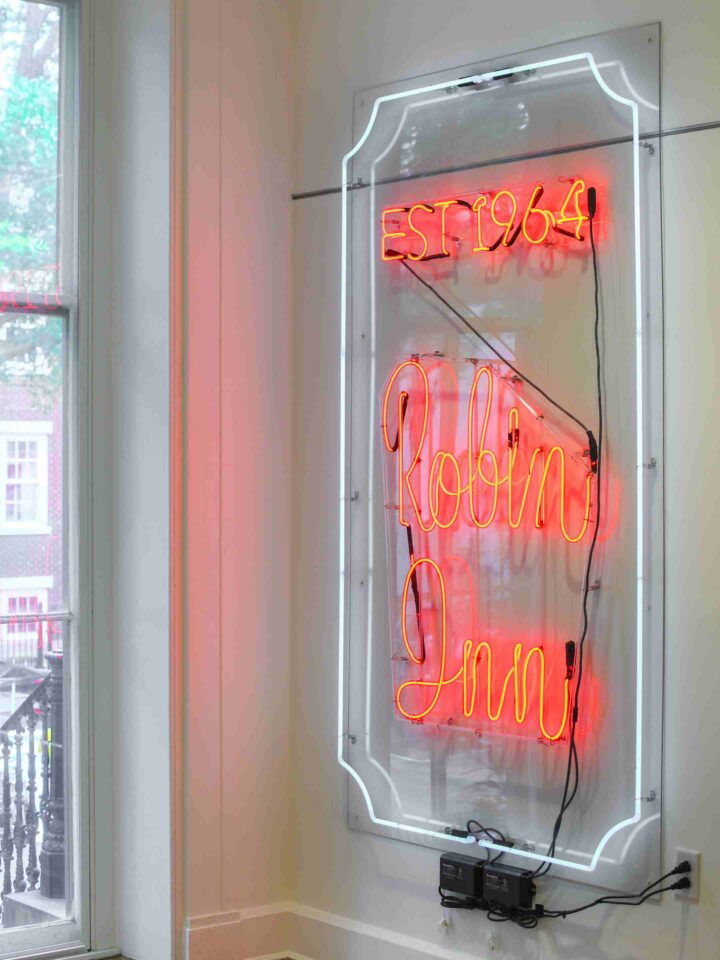
Richmond and the Olympic Torch
Are you surprised that Richmond has an Olympic history? It does! In 1996, the Olympic torch passed through and even spent the night here, on its way to Atlanta.
By Valentine Museum Staff
The “Mother Torch” had left Athens, Greece, on April 27, aboard a Delta flight to Los Angeles. They were granted special permission for the airborne flame, which burned inside a brass lantern, inside a bronze canister, while affixed to the wall of the plane. From Los Angeles, the Olympic flame began its 15,000-mile, 84-day journey to Atlanta. The fire was carried by hand by 10,000 torch bearers, who made their individual half-mile journeys to light the next torch in line. Some walked, some ran, others rode bikes or wheelchairs or motorcycles. Every night, the Mother Flame stayed in a hotel room with two police officers: one slept, while the other kept watch to make sure the flame never went out.
The actual torches—17,700 of them—weighed three pounds and were outfitted with dual burners that could withstand rain and 45mph winds. The lit torches were further protected by a motorcade of Georgia State Troopers, Olympic Committee vehicles, and many sponsor cars, including a fleet of Coca-Cola trucks and trailers, stocked to sell to thirsty spectators along the epic journey across the country. This was, after all, the first Olympics to rely almost exclusively on corporate sponsors. The Georgia State Troopers rode in $33,000 BMWs that were painted like the $18,000 Crown Victorias they normally drove.
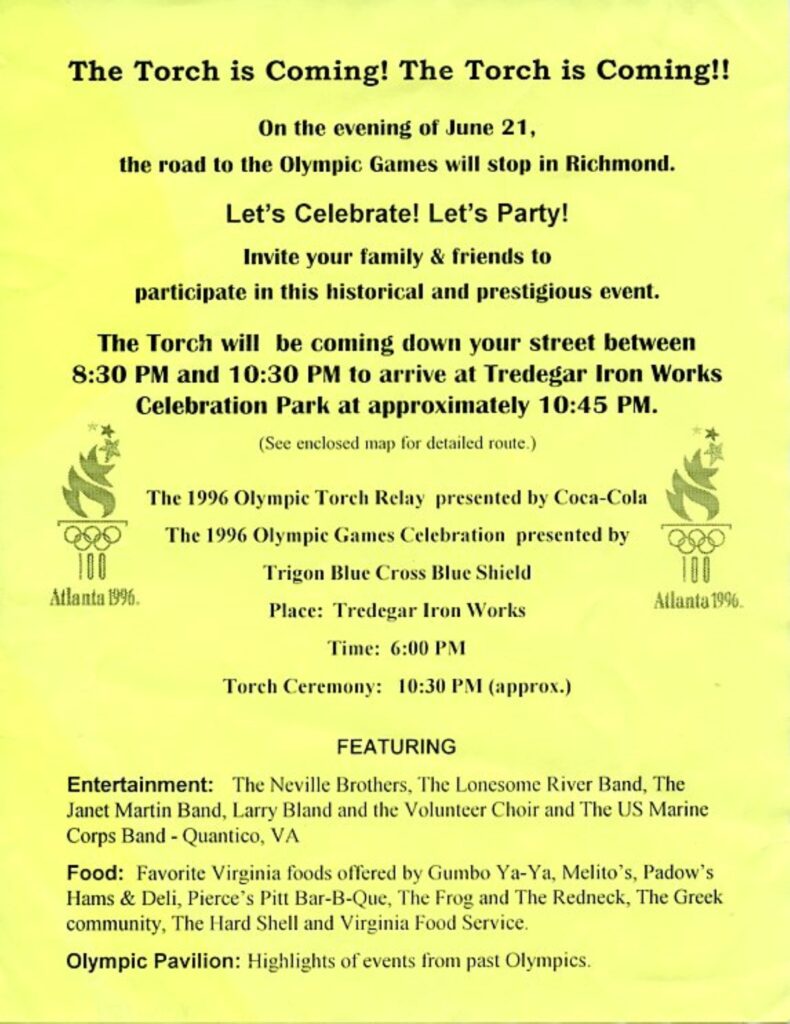
The torch entered Richmond via Monument Avenue on the night of June 21. Around 9:45pm, it passed one of the major symbols of our “reformed” southern city: the Arthur Ashe, Jr. Monument, which was to be unveiled in just a couple weeks.
In all, 24 locals moved the torch through Richmond. Thousands lined the dark streets to watch the procession. At 10:30pm, Judy Henry, a cancer survivor and mother of five relayed the torch to Tredegar, where approximately 15,000 spectators cheered her on as she lit the cauldron and kicked off a gala. Among the flags of 100 nations, live music, food carts and living gold-painted statues, the party went on late into the night and turned out to be much larger than anyone expected.
Newspaper accounts and interviews about the Olympic event here alluded to optimism, unity and joy. Kids freely confessed to reporters that they had skipped school to follow the torch, others that they had skipped work. Clearly, Richmonders glimpsed hope in the Olympic torch’s brief stay here. But by 10am the next morning, it had moved on to Petersburg.
On July 19, the flame arrived in Atlanta. There, Muhammad Ali received the final torch and lit the cauldron to open the 1996 Summer Games. Thus, the city devastated by fire in 1864 hoped for rebirth through a different kind of fire. And Ali, near the end of the games, was given a replacement gold medal for the boxing gold he had won at the 1960 Rome Olympics. Decades earlier, Ali claimed to have thrown his original medal in the Ohio River, after being refused service at a Louisville restaurant. Though some doubted the story, the medal had definitely been lost and it seemed fitting for him to reclaim his lost gold.
Need to cite this?
| Authors | Valentine Museum Staff |
|---|---|
| Work Title | Richmond and the Olympic Torch |
| Website | https://thevalentine.org |
| Published | July 22, 2021 |
| Updated | May 24, 2024 |
| Copyright | © 2024 The Valentine Museum |
